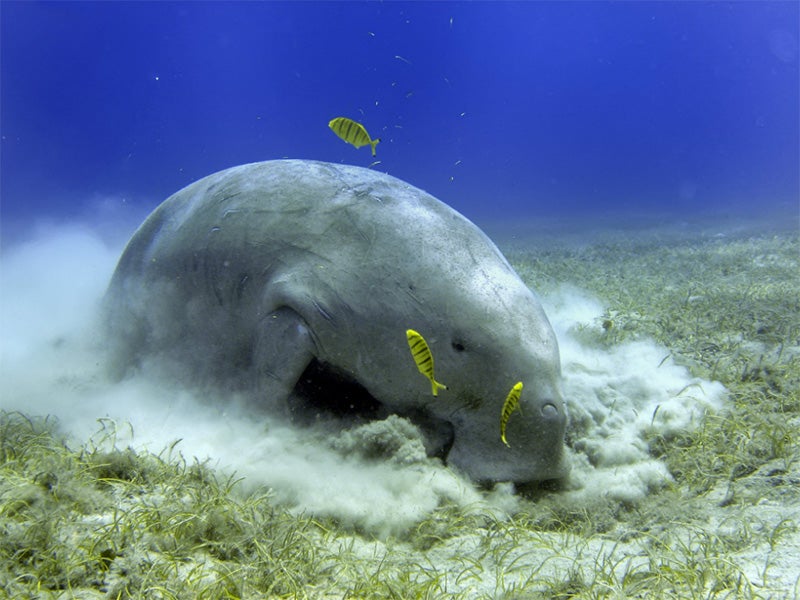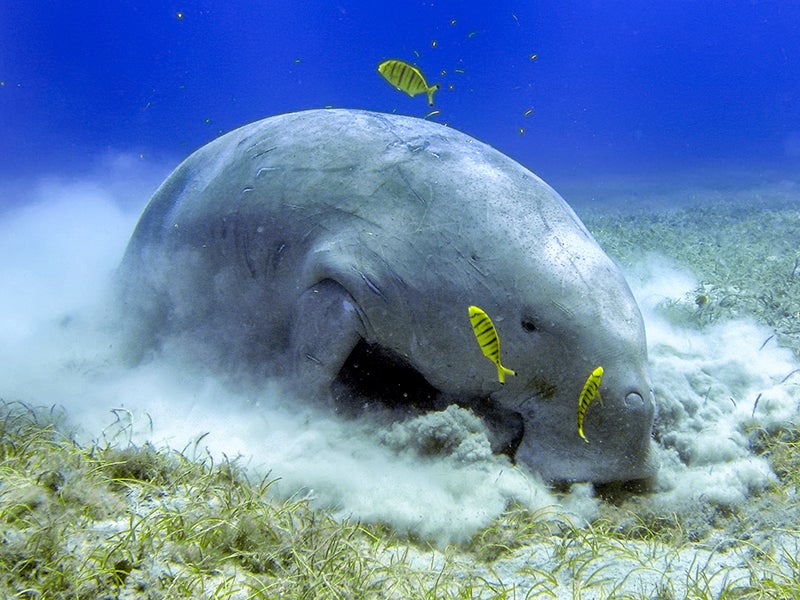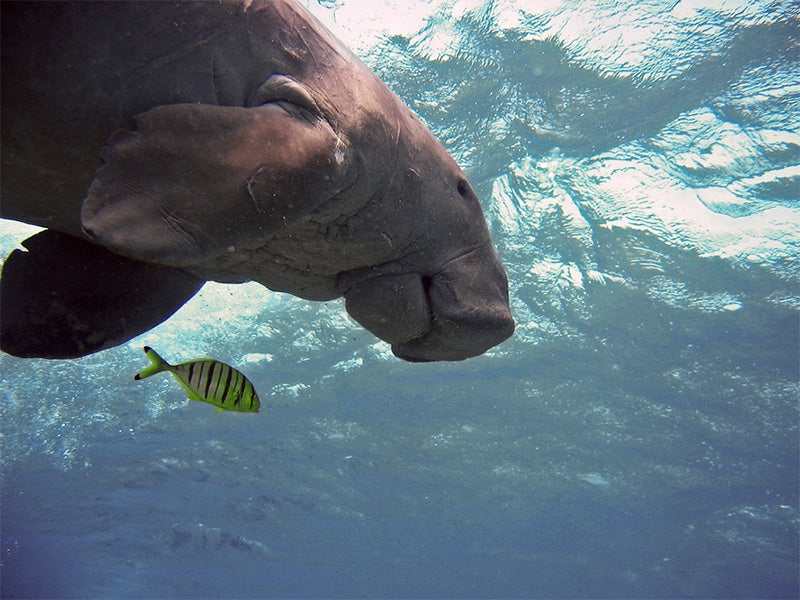Protecting the Endangered Dugong From a Proposed Military Airbase
Dugongs are ancient cultural icons for the Okinawan people. They are listed as an object of national cultural significance under Japan’s Law for the Protection of Cultural Properties. In 1997, it was estimated that there may have been as few as 50 Okinawa dugongs left in the world; more recent surveys have only been able to conclude that at least three dugongs remain in Okinawa.
Clients
Regional Office / Program
Case Overview
A U.S. base expansion in Okinawa, Japan, would pave over some of the last remaining habitat for critically endangered Okinawa dugongs, ancient cultural icons for the Okinawan people and marine mammals related to manatees. The dugong is listed as an object of national cultural significance under Japan’s Law for the Protection of Cultural Properties, the equivalent of the U.S. National Historic Protection Act.
A hearing in this historic lawsuit brought by American and Japanese conservation groups under a provision of the National Historic Preservation Act that requires the United States to avoid or mitigate any harm to places or things of cultural significance to another country was held in December 2014.
The Japanese Ministry of the Environment has listed dugongs as “critically endangered,” and the animals are also on the U.S. endangered species list. In 1997, it was estimated that there may have been as few as 50 Okinawa dugongs left in the world; more recent surveys have only been able to conclude that at least three dugongs remain in Okinawa.
The lawsuit, filed in U.S. District Court in San Francisco, is the latest in a long-running controversy over the expansion of a U.S. Marine air base at Okinawa’s Henoko Bay. Preliminary construction on the base began in 2014.
Earthjustice, on behalf of the Center for Biological Diversity, Turtle Island Restoration Network, Japan Environmental Lawyers Federation, Save The Dugong Foundation, Anna Shimabukuro, Takuma Higashionna, and Yoshikazu Makishi, are arguing that the Court should review the U.S. Department of Defense’s flawed efforts to examine the harm the expansion will cause for the Okinawa dugong, and stop the Department of Defense from allowing construction of the new airstrip until it has made meaningful attempts to avoid or mitigate that harm.

Case Updates
Case page created on October 21, 2003.

